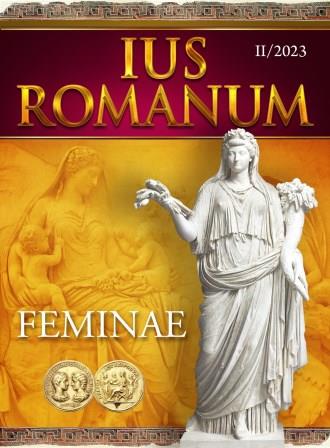WIDOW’S USUFRUCT IN ROMAN LAW AND CONTEMPORARY LAW
WIDOW’S USUFRUCT IN ROMAN LAW AND CONTEMPORARY LAW
Author(s): Novak KrstićSubject(s): Law, Constitution, Jurisprudence, History of Law, Civil Law, Canon Law / Church Law, EU-Legislation, Roman law
Published by: Софийски университет »Св. Климент Охридски«
Keywords: succession law; spouse; widow; usufruct; Roman law; contemporary law
Summary/Abstract: The position of a woman as a legal heir in Roman law was not favorable. During the long history of the development of the Roman state and Roman law, it continuously changed. The Novels of Justinian, enacted in the first half of the 6th century, improved women's inheritance rights. A widow could inherit the part of her deceased husband's property if she had no children by him, and when she inherited with their joint children, she only had the right to usufruct on part of the deceased's inheritance. Given that Roman law had a strong influence on modern laws, the institution of widow's usufruct still exists today in certain laws. In this paper, we will point out the characteristics of widow's usufruct in Roman law and analyze current solutions in contemporary European legal systems. In addition, we will pay attention to how the Serbian Civil Code from 1844 regulated the widow's right to usufruct, as well as the conditions under which the surviving spouse can exercise the right to usufruct on the estate of the deceased spouse in current Serbian law.
Journal: IUS ROMANUM
- Issue Year: 2023
- Issue No: 2
- Page Range: 692-707
- Page Count: 16
- Language: English

